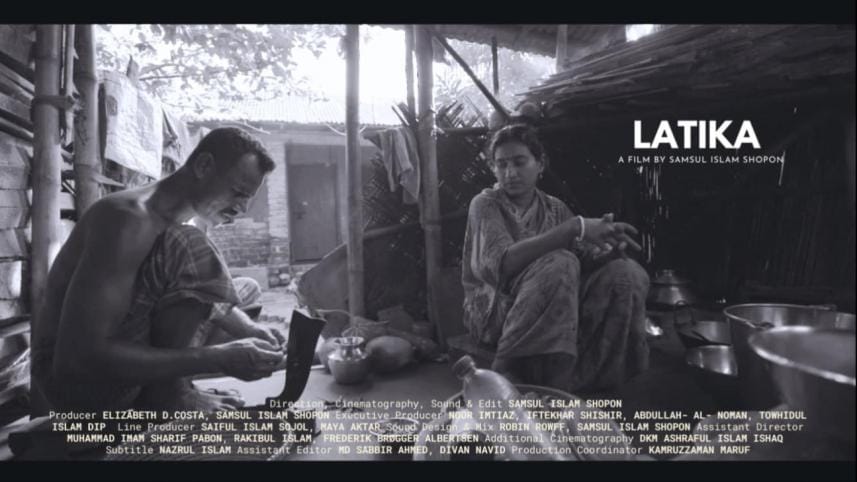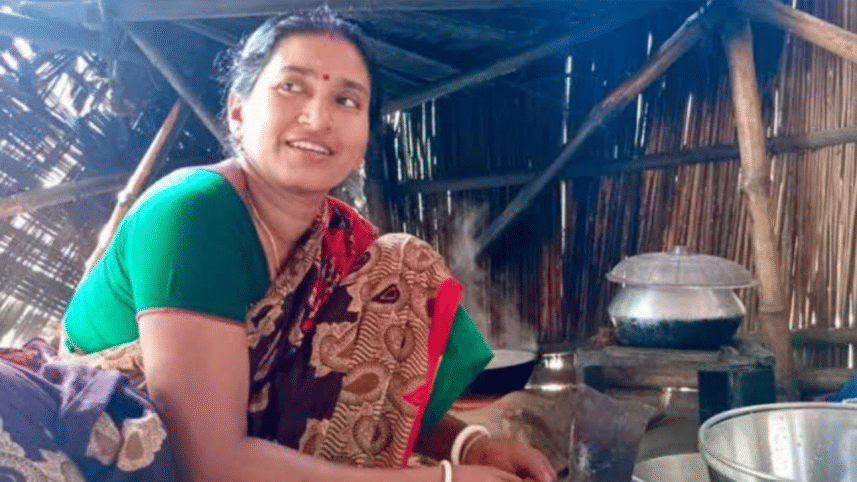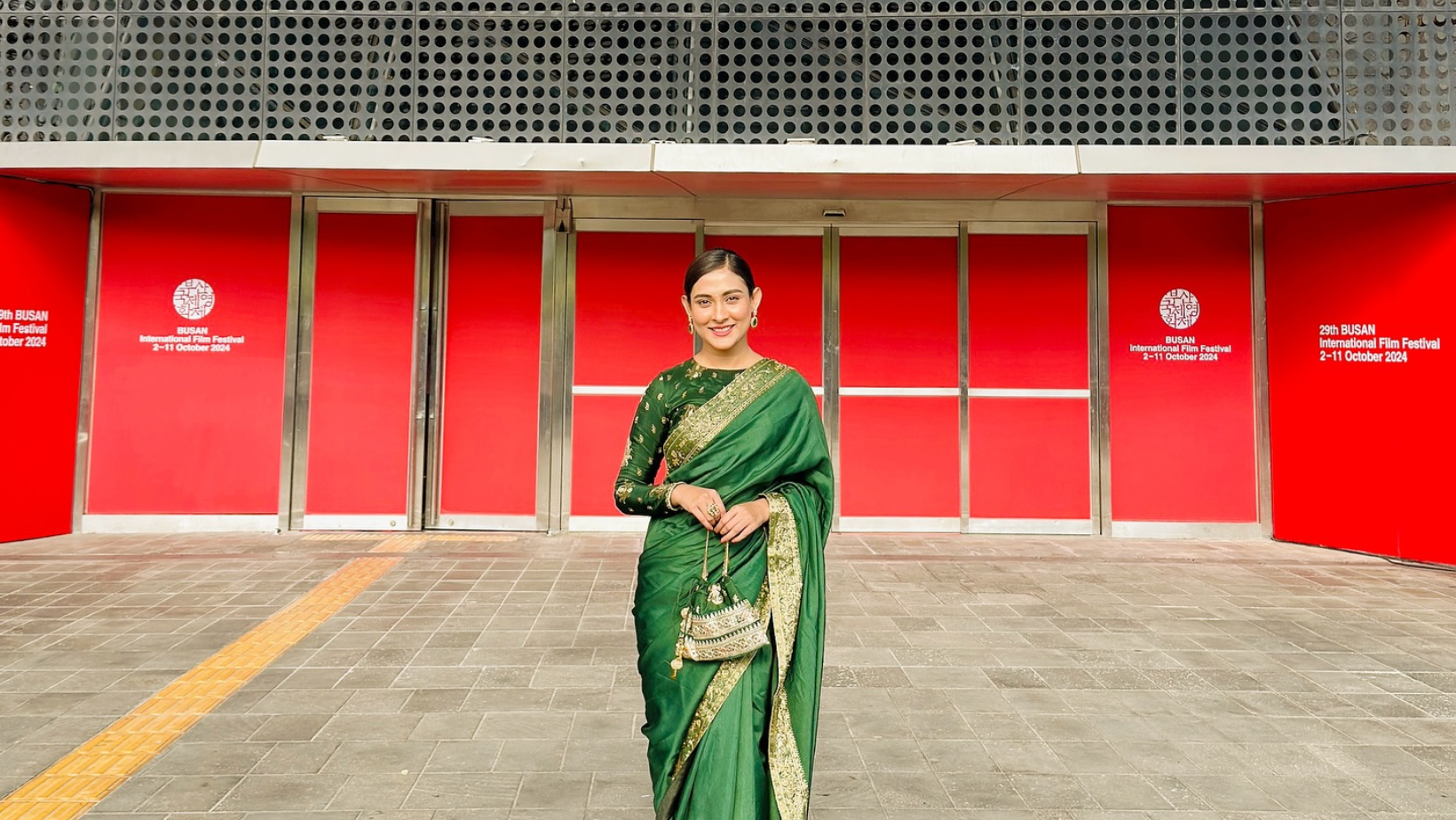‘Latika’ to represent Bangladesh at COP29 in Azerbaijan

Samsul Islam Shopon's documentary "Latika" is putting Bangladesh on the global cinematic map once again. This time it will represent the nation at the prestigious COP29 climate summit in Baku, Azerbaijan. Following its impressive festival run, "Latika" will be showcased at the summit, underscoring the film's relevance to both environmental and cultural discourses.
The short documentary, which highlights the life of Latika, a resilient woman from the Malo community in Narail, Bangladesh, has earned its spot at the upcoming DokuBaku International Documentary Film Festival, and is scheduled to compete in two categories there.
The director confirmed that it also became the reason behind the film taking up room at the 2024 United Nations Climate Change Conference or Conference of the Parties of the UNFCCC, more commonly known as COP29, set to take place from November 11 to 22.
Shopon's "Latika" captures the fading traditions of the Malo community, centring on its lead Latika and her husband Shyam Biswas, a fisherman who uses trained otters to catch fish—a centuries-old practice now on the verge of extinction. The film intimately portrays the family's struggle for survival on the banks of the Chitra River, as they navigate the hardships of raising two children while managing their livelihood with three pairs of otters.
The global recognition of "Latika" is not just a personal triumph for Shopon but also a testament to the power of storytelling that blends human resilience with environmental issues. "I'm absolutely thrilled," Shopon said about the film's selection at COP29. "Beyond filmmaking, I've spent the last four years working on issues related to Bangladesh's endangered species, indigenous communities, climate, and the environment from a place of social responsibility."
"Latika" is no stranger to international acclaim. It has already made waves at significant film festivals, including Switzerland's Visions du Réel, the WOW-Wales One World Film Festival, the Moscow International Documentary Film Festival, and the Chittagong International Documentary Film Festival.
In London, "Latika" last entered the main competition at the Animal Nature Future Film Festival on September 27. Then, it travelled to Azerbaijan, where it participated in the non-main competition section of the DokuBaku International Documentary Film Festival starting October 1.
The film's success stems from its ability to connect deeply with audiences, offering a window into a disappearing way of life. Through the raw and honest depiction of the Malo family's struggles, "Latika" invites viewers to reflect on themes of tradition, survival, and the delicate balance between human life and nature.
For Shopon, "Latika" is more than just a film about a single family. "This isn't just a story about one family," he emphasised. "It's a window into a disappearing way of life, into the struggles of people whose livelihoods are directly tied to the natural world. Through their story, we're challenged to think about sustainability, biodiversity, and our dependence on nature for survival."
The film's inclusion in the Animal Nature Future Film Festival is particularly significant, as it aligns with the event's focus on critical environmental issues. The festival's special biodiversity screening featured "Latika" alongside other impactful works, such as China's documentary "Defenders of the Hidden", highlighting global environmental challenges.

A film with a message beyond borders
"Latika's" success lies not only in its cinematic artistry but also in its ability to inspire global conversations about the intersection of cultural heritage and environmental preservation. "As the only Bangladeshi filmmaker selected for these prestigious events, it's an incredible honour to showcase our culture and stories to the world. It's time the world saw the depth of stories that come from our communities," said Shopon.
With its poignant exploration of life, tradition, and nature, "Latika" has resonated with audiences across cultures, proving that local stories can have universal appeal. Taking on international recognition, the film continues to break boundaries and inspire important conversations about the future of our environment and the preservation of cultural heritage.
The journey of "Latika" is far from over, and its director hopes that its upcoming screenings will further the global impact of the film, encouraging viewers to reflect on the pressing issues of sustainability, biodiversity, and the interdependence of human life and nature.



 For all latest news, follow The Daily Star's Google News channel.
For all latest news, follow The Daily Star's Google News channel. 


Comments